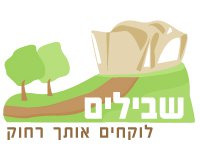CENTER STRUCTURE
CENTER STRUCTURE
Dotan Shabtay, the center’s director, earned his bachelor’s degree in Ancient Israel Studies.
He is a certified T.E.A.M and PIVOT practitioner and a facilitator for groups of youth at-risk.
A tour guide and an expedition’s instructor, Dotan also holds certification from the Ministry of Education and the Society for the Protection of Nature in Israel.
Miri Golan is the center’s head of training; a group facilitator and a sex educator for children and youth, Miri holds an MSW (Master of Social Work).
Shvilim activities are carried out through two chapters:
